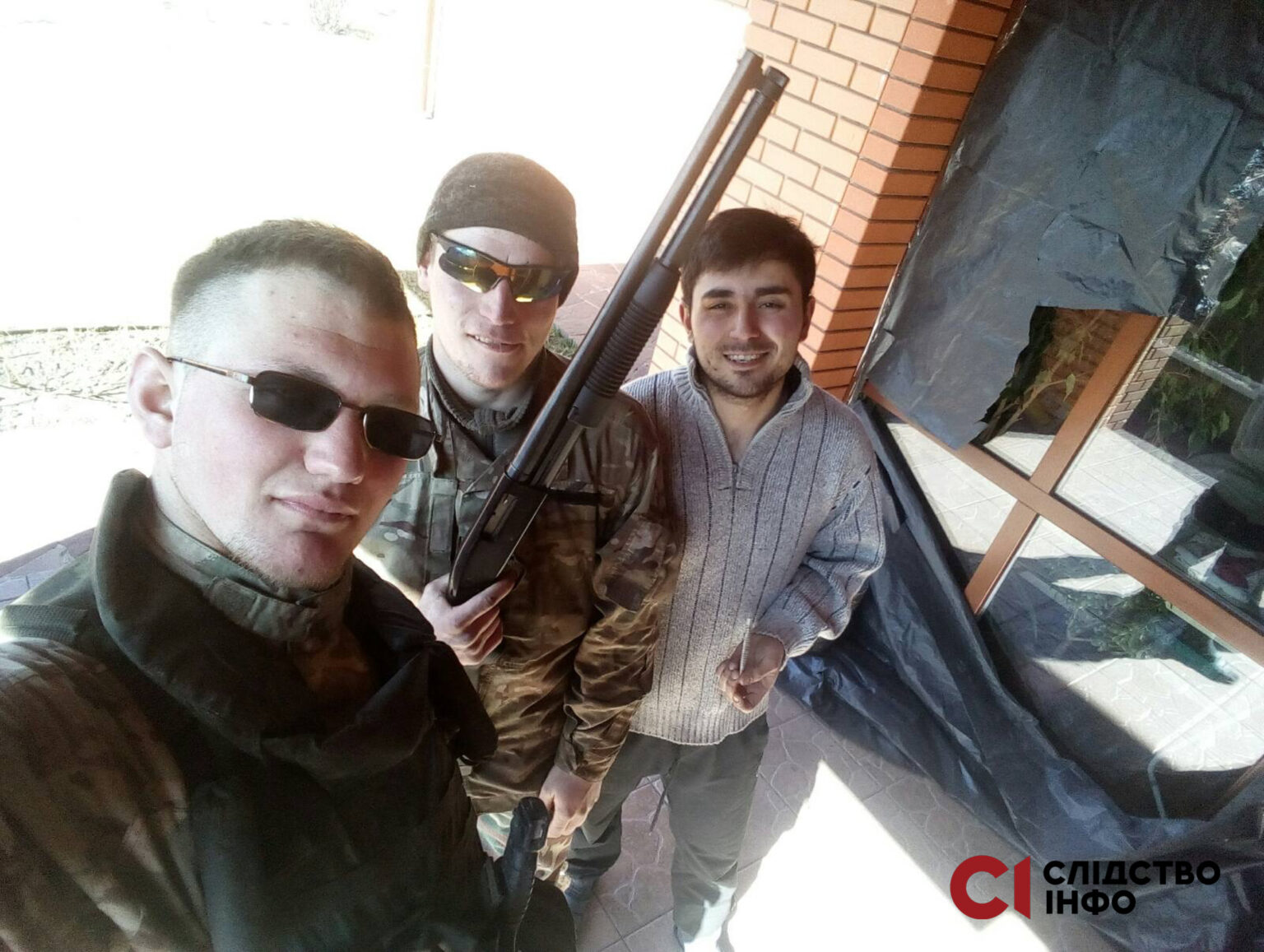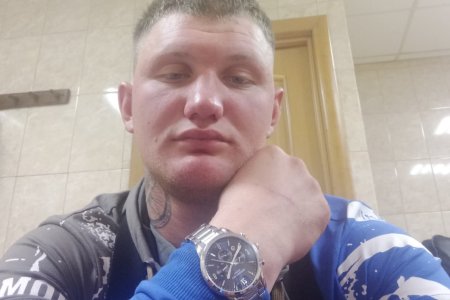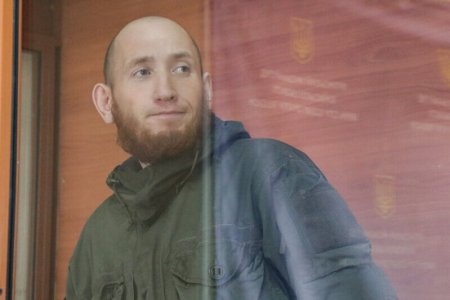
A military court in Khabarovsk has handed down a five and a half year suspended sentence* against Russian soldier Daniil Frolkin in a trial clearly intended to deter other soldiers from admitting to war crimes in Ukraine. Although there is ample evidence corroborating Frolkin’s admission to having killed a civilian in cold blood and other war crimes while stationed in the then occupied Avdiivka (Kyiv oblast), he was prosecuted instead for circulating ‘fake news’,, with the prosecutor having demanded a six-year term of imprisonment.
Frolkin was charged with one of two new ‘offences’ rushed into law within ten days of Russia’s full-scale invasion of Ukraine. Article 207.3 of Russia’s criminal code carries a sentence of up to 15 years’ imprisonment for what is claimed to be knowingly circulating false information, or ‘fakes’, about Russia’s war against Ukraine. Another article, 280.3 punishes for what is deemed ‘to discredit’ those taking part in this war, which Russia is still calling a ‘special military operation’. In both cases, the new provisions initially applied only to the Russian armed forces, but were broadened within weeks to cover all Russian enforcement officers and other officials. According to new legislation which is about to come into force, even the convicted criminals fighting as mercenaries in the Wagner and other ‘private military companies’ will now be protected from comments, publications, etc. which are claimed to ‘discredit’ them or be ‘fake news’.
One need only look at previous sentences to understand that Article 207.3 is not punishing for fake news, but for information that contradicts Moscow’s official narrative, which denies all attacks on civilians, regardless of the weight of evidence. On 15 February 2023, Russian journalist and human rights activist Maria Ponomarenko was sentenced to six years’ imprisonment for a post on Telegram about Russia’s bombing of the Drama Theatre in Mariupol on 16 March 2022. Ponomarenko’s post about the bombing of a place known to be sheltering many hundreds of women, children and the elderly and which even had huge signs in front and from the back saying (in Russian) CHILDREN, was claimed to be ‘fake news’. Russia has used its occupation of Mariupol to destroy the ruins of the Drama Theatre, and is also believed to have put pressure on Mariupol residents forcibly deported to Russia or occupied Crimea to extract entirely surreal ‘testimony’ claiming that it was somehow Ukrainian defenders who destroyed the Drama Theatre. This was probably Russia’s worst war crime and is believed to have killed at least 300 civilians.
Exactly a year after the atrocity, judge Anton Brykin from the Khabarovsk Military Garrison Court issued a new ruling under Article 207.3, this time accepting that a Russian soldier’s own admission that he committed war crimes constituted ‘fake news’.
As reported, it was the independent Russian publication Vazniye Istorii [Important Stories] which, in August 2022, published and posted video footage of Daniil Frolkin’s confession, together with information about three other Russian soldiers.
It was this that led to criminal charges being brought against Frolkin in Russia. Not, however, for the crimes that he had committed, but for admitting to them. This is despite the fact that there was considerable evidence of his guilt, even without his admission.
There are a huge number of witness and victim accounts of Russian soldiers stealing anything they could lay their hands on. Mobile phones, however, were also taken away to prevent civilians using them to inform Ukraine’s Armed Forces of the enemy’s whereabouts. Among the phones that the invaders took from people in Avdiivka was that belonging to 76--year-old Leonid Udod. They obligingly provided evidence against themselves by taking photos of each other and then left it behind when forced to retreat. The phone was found at the end of May 2022 by another Avdiivka resident who, thankfully, took it to a humanitarian aid centre, together with the 25 incriminating photos. In June, the Prosecutor General’s Office announced that criminal proceedings had been initiated against Frolkin on suspicion of killing an Avdiivka resident; of stealing a car and WWII and other medals from a veteran. On 17 July, the Ukrainian investigative journalist initiative Slidstvo first reported the evidence against Frolkin, with this also posted on YouTube.
On 15 August, Important Stories reported that they had succeeded in identifying four of the Russian soldiers from the 64th motorized rifle brigade, naming, in addition to Frolkin, Dmitry Danilov; Ruslan Glotov and Ivan Shepelenko.
They had also spoken with Frolkin who had admitted, on video, to killing a civilian and to looting. The media outlet’s journalist (Yekaterina Fomina) had travelled to Kyiv oblast and spoken with residents of Avdiivka who confirmed that they recognized all of the men. She spoke, for example, with the son-in-law of Petro Kravchenko, a veteran of the Second World War, whose war medals Frolkin can be seen wearing on the photos, and which were stolen, together with two TV sets and numerous other appliances from the elderly man’s home. Nor is there only witness testimony of Frolkin’s involvement, as the Russians left their uniforms when they retreated, and there are trousers with Frolkin’s name tags.
The Avdiivka residents interviewed recognized all of the men on the photos as well as at least one, Alexander Chiryasov, who is known to have also been in the 64th motorized brigade (and may have been killed). All recounted how the invaders had looted homes, in one case even stealing a bra.
As in other occupied parts of Kyiv oblast, looting was the least of the Russians’ crimes. The bodies of thirteen men from the village were found, all having been shot, while several other men were still missing.
Russian soldiers from Frolkin’s 64th motorized infantry brigade are suspected of being behind many atrocities committed against civilians in Kyiv oblast. Video and photographic evidence of these crimes had already emerged, and received wide international coverage, when, on 18 April, Russian leader Vladimir Putin issued a decree ‘honouring’ members of the brigade for their supposed “mass heroism, daring, tenacity and courage”/
Two of the soldiers from the 64th motorized brigade agreed to speak with Important Stories - Frolkin and Dmitry Danilov, whom local residents said had been referred to by the Russians as ‘sniper’. Danilov essentially denied any wrongdoing, while Frolkin accused the brigade commander Azatbek Omurbekov of looting on a major scale, while largely denying that he and his fellow contract soldiers were involved. During that initial conversation, Frolkin also denied any involvement in the killing of civilians.
Shortly afterwards, however, Frolkin phoned the journalist again, admitted in detail to the killing and to looting. He went on to name all of those in the military command whom he believed should face liability for their crimes (Azatbek Omurbekov; lieutenant colonel Dmitrenko; the brigade’s chief logistics officer colonel Klobukov, and chief reconnaissance officer lieutenant colonel Romanenko. He further accused lieutenant colonel Andrei Prokurat of having issued the order to kill civilians (literally, “to dispose of them”). The killing, he said, had been some time in March when he and some other soldiers had accompanied Prokurat to three homes in Avdiivka. Prokurat took money from one of the houses, handed over papers and phones to the soldiers and told them to “dispose of” the civilians. Important Stories believes that the three victims were Vadym Haniuk; Vitaliy Kubukevych and Ruslan Yaremchuk, and that Frolkin probably killed Yaremchuk. He claimed to be sure that Yaremchuk had passed on the whereabouts of other Russian soldiers and, when prompted by the journalist, agreed that he had killed him in revenge. He further asserted that this was the only person that he had killed in all seven months of his involvement in the war (until his resignation in July 2022) and that he supposedly killed this Ukrainian civilian because he “wanted to save as many soldiers as possible.”
It became clear late in December 2022 that Russia had initiated criminal charges against Frolkin for supposedly spreading ‘fake information’. It was claimed that he had done this out of mercenary motives, though it remains unclear who is supposed to have paid him for admitting to war crimes.
The new sentence also coincided with the publication by the UN’s Human Rights Committee of a new report on the “wide range of violations of international human rights law and international humanitarian law in various regions of Ukraine, many of which amount to war crimes”, committed by the Russian authorities.
* This was updated, after earlier reports of the sentence in independent Russian media stated that Frolkin had been jailed for five and a half years


